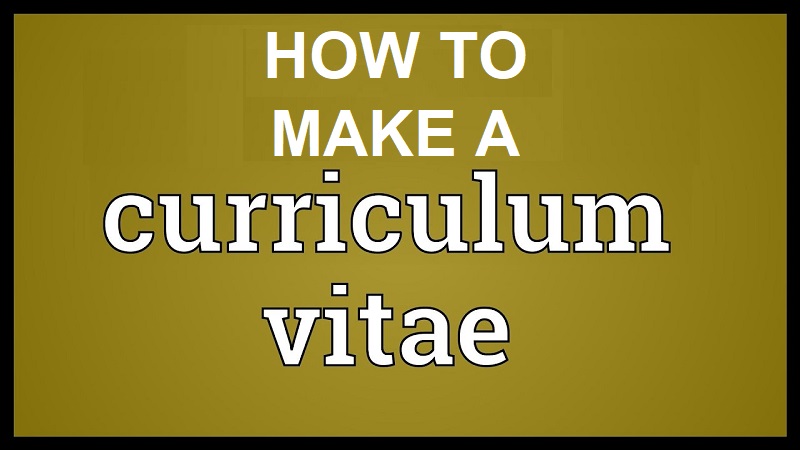Preparing for a job interview can be a nerve-wracking experience, but with the right strategies and techniques, you can increase your chances of success. In this article, we will explore the key steps to help you prepare for an interview effectively.
There are 9 Key Steps to Help You Prepare for an Interview Effectively
Research the Company
One of the first and most crucial steps in preparing for an interview is researching the company you are interviewing with. This research will help you understand the company’s culture, values, mission, and products or services. Here’s how to do it:
Visit the company’s website:
Explore their About Us page, mission statement, and any recent news or blog posts.
Read employee reviews:
Websites like Glassdoor or Indeed can provide insights into the company’s work environment and interview process.
Investigate their social media presence:
Check their LinkedIn, Twitter, or Facebook profiles for recent updates and company culture cues.
Analyze the industry:
Understand the company’s position within its industry and any recent trends or challenges it might be facing.
Review the Job Description
Carefully review the job description to understand the specific requirements and responsibilities of the role you’re interviewing for. Pay attention to keywords and phrases, as these will help you tailor your answers during the interview to align with the job’s demands.
Highlight key qualifications:
- Identify the qualifications and skills the company is looking for and match them with your own experiences.
- Prepare specific examples:
- Think of situations where you demonstrated the skills and qualities mentioned in the job description, as you may be asked to provide concrete examples during the interview.
Practice Common Interview Questions
To prepare for an interview, practice answering common interview questions. While you can’t predict every question you’ll be asked, many questions tend to be standard across interviews. Some common questions include:
- “Tell me about yourself.”
- “Why do you want to work here?”
- “What are your strengths and weaknesses?”
- “Describe a challenging situation you faced at work and how you handled it.”
Practice your responses to these questions, focusing on clear and concise answers that highlight your qualifications and experiences.
Prepare Questions for the Interviewer
Interviews are a two-way street, and it’s essential to have questions for the interviewer. This demonstrates your interest in the company and the role. Consider asking questions like:
- “What are the company’s short-term and long-term goals?”
- “Can you describe the team I will be working with?”
- “What are the key challenges facing the department right now?”
- “What does success look like in this role?”
Dress Appropriately
Choosing the right attire is an important aspect of interview preparation. Dressing appropriately for the interview shows respect for the company’s culture and professionalism. When deciding what to wear:
Research the company dress code:
- Some companies have a formal dress code, while others are more casual. Dress one level above their standard attire to make a good impression.
- Ensure your clothes are clean, well-fitted, and free from wrinkles.
- Avoid flashy accessories and strong scents.
Plan Your Journey
Avoid last-minute stress on the day of the interview by planning your journey in advance:
- Know the interview location and the route to get there. Consider doing a trial run if it’s an unfamiliar location.
- Check transportation options, whether you’re driving, using public transit, or taking a ride-sharing service.
- Aim to arrive at least 15-30 minutes early to account for any unexpected delays.
Gather Necessary Documents
Prepare a folder or portfolio with essential documents, including:
- Multiple copies of your resume.
- A list of references, if required.
- Any certifications or licenses relevant to the position.
- A notepad and pen for taking notes during the interview.
Practice Good Interview Etiquette
During the interview, it’s crucial to demonstrate good etiquette:
- Offer a firm handshake and maintain eye contact when greeting the interviewer.
- Listen attentively to the questions and take a moment to gather your thoughts before answering.
- Speak clearly and confidently, avoiding excessive use of filler words like “um” and “uh.”
- Show enthusiasm for the position and the company.
Follow-Up After the Interview
After the interview, send a thank-you email within 24 hours to express your gratitude for the opportunity and reiterate your interest in the position. This is also an opportunity to address any points you may not have covered during the interview.
FAQs
What is the importance of researching the company before an interview?
Researching the company before an interview is crucial because it helps you understand the organization’s culture, values, and mission. It allows you to tailor your responses to align with what the company is looking for in a candidate. Additionally, being knowledgeable about the company demonstrates your genuine interest and enthusiasm for the role, which can set you apart from other candidates. Furthermore, understanding the company can help you formulate thoughtful questions to ask the interviewer, showing that you’ve done your homework and are invested in the opportunity.
How can I effectively prepare for common interview questions?
Preparing for common interview questions involves several steps. First, review the job description and identify the key qualifications and skills the company is seeking. Next, practice your responses to questions like “Tell me about yourself,” “What are your strengths and weaknesses?” and “Describe a challenging situation you faced at work.” Use the STAR (Situation, Task, Action, Result) method to structure your answers with specific examples from your past experiences. Consider conducting mock interviews with a friend or career coach to get feedback and build confidence. Remember to be concise and to the point in your responses.
Why is it essential to send a thank-you email after an interview?
Sending a thank-you email after an interview is a crucial step in the post-interview process. It serves several important purposes. First, it allows you to express your gratitude for the opportunity to interview, showing professionalism and appreciation. Second, it provides a chance to reiterate your interest in the position and the company, keeping you fresh in the interviewer’s mind. Additionally, it’s an opportunity to address any points you may not have covered during the interview or to provide additional information that could strengthen your candidacy. A well-crafted thank-you email can leave a positive final impression and increase your chances of moving to the next stage of the hiring process.
Conclusion
In conclusion, effective preparation is the key to success in job interviews. By researching the company, practicing your responses, dressing appropriately, and demonstrating good interview etiquette, you can increase your chances of leaving a positive impression on the interviewer and securing the job you desire. Good luck with your interview preparation!





